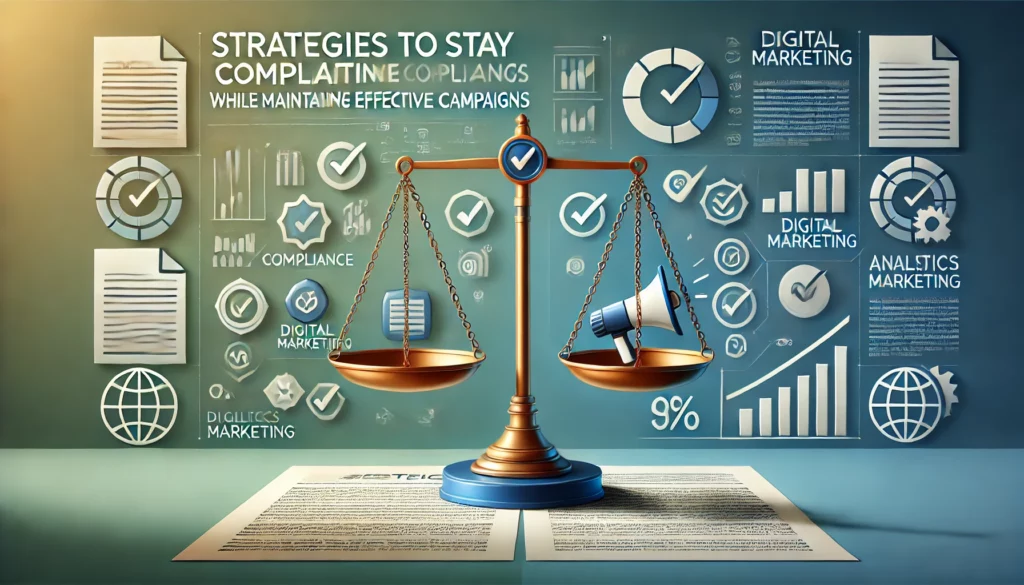In 2025, data privacy regulations are stricter, more comprehensive, and globally enforced. As digital marketing continues to rely on consumer data, businesses must adapt their strategies to comply with evolving privacy laws while maintaining effective and personalized campaigns.
This article explores the current state of data privacy regulations, their impact on marketing, and strategies to stay compliant without sacrificing campaign performance.
The State of Data Privacy in 2025
The Rise of Privacy-First Marketing
Governments worldwide are implementing stringent data privacy laws to protect consumers’ personal information. These regulations aim to address growing concerns about data misuse, breaches, and surveillance.
Key Data Privacy Regulations in Effect:
- General Data Protection Regulation (GDPR) (Europe): A benchmark for global privacy standards, GDPR focuses on transparency, user consent, and data security.
- California Consumer Privacy Act (CCPA) and CPRA (U.S.): Empower consumers to access, delete, and control their personal data.
- India’s Digital Personal Data Protection Act (DPDPA): A comprehensive framework governing data collection and consent.
- AI-Specific Regulations: New laws addressing AI-driven data processing, ensuring fairness and accountability.
Why Marketers Need to Adapt
By 2025, non-compliance can result in:
- Hefty Fines: GDPR fines can reach up to €20 million or 4% of global turnover, whichever is higher.
- Loss of Consumer Trust: 81% of consumers say trusting a brand is a deciding factor in purchasing (Source: Edelman Trust Barometer).
- Operational Restrictions: Non-compliance can lead to bans or restrictions on operations in specific regions.
Challenges in Adapting Marketing Strategies
- Decline of Third-Party Cookies
Major browsers like Chrome have phased out third-party cookies, limiting marketers’ ability to track users. - Increased Compliance Complexity
Global businesses face challenges navigating diverse regional laws with unique requirements. - Balancing Personalization and Privacy
Marketers must offer personalized experiences without appearing intrusive or violating privacy norms. - AI and Automated Marketing
AI-driven campaigns that analyze user data must comply with regulations ensuring fairness and transparency.
Strategies to Stay Compliant While Maintaining Effective Campaigns

1. Prioritize First-Party Data Collection
First-party data is information collected directly from users through your owned channels, such as websites, apps, and emails. This data is more reliable and complies with privacy regulations.
Best Practices:
- Create Value for Users: Offer incentives like discounts, exclusive content, or personalized recommendations in exchange for user data.
- Use Consent Forms: Make opt-ins clear, transparent, and easy to understand.
- Leverage CRM Tools: Tools like HubSpot or Salesforce help manage first-party data securely.
Example:
Retailer ASOS revamped its loyalty program to collect first-party data, offering personalized discounts in return for preferences like style and size.
2. Adopt a Privacy-By-Design Approach
Embed privacy into every stage of your marketing strategy, from campaign design to execution.
Key Steps:
- Conduct Privacy Impact Assessments (PIAs): Analyze the privacy implications of new campaigns.
- Minimize Data Collection: Only collect data necessary for the campaign’s purpose.
- Secure User Data: Encrypt and anonymize sensitive information to prevent breaches.
3. Leverage Zero-Party Data
Zero-party data is explicitly provided by users, such as preferences, feedback, and intentions. It’s highly valuable for creating personalized campaigns while respecting privacy.
How to Collect Zero-Party Data:
- Interactive Quizzes and Polls: Ask users questions in exchange for tailored recommendations.
- Surveys: Request feedback to understand consumer needs.
- Preference Centers: Allow users to customize their communication preferences.
Example:
Netflix asks users to rate shows and movies, using this data to refine its recommendation engine.
4. Use Consent Management Platforms (CMPs)
CMPs simplify compliance by managing user consent across multiple channels and regions.
Features of CMPs:
- Display cookie banners compliant with GDPR, CCPA, or other regulations.
- Allow users to opt in or out of data collection.
- Log consent activity for audits.
Recommended Tools:
- OneTrust: Offers compliance solutions for GDPR, CCPA, and more.
- TrustArc: Manages data privacy across multiple jurisdictions.
5. Embrace Contextual Advertising
Contextual advertising delivers ads based on the content of a webpage, rather than user data. It’s a privacy-friendly alternative to behavioral targeting.
Benefits of Contextual Ads:
- High Relevance: Matches ads with user intent based on the content they’re viewing.
- Compliance Assurance: No need for personal data or tracking cookies.
Tools for Contextual Targeting:
- Google Ads: Offers content-based targeting options.
- GumGum: Uses AI to deliver contextually relevant ads.
6. Implement Robust Data Security Measures
Data breaches not only harm compliance but also erode consumer trust. Strong security measures are non-negotiable.
Essential Steps:
- Encrypt Data: Use end-to-end encryption for all sensitive information.
- Regular Audits: Conduct regular security assessments to identify vulnerabilities.
- Access Controls: Restrict data access to authorized personnel only.
7. Educate Your Team
Ensure your marketing team understands data privacy regulations and their implications.
Training Tips:
- Host workshops on GDPR, CCPA, and other relevant laws.
- Provide guidelines for creating compliant campaigns.
- Update policies regularly to reflect changing laws.
8. Maintain Transparent Communication
Transparency builds trust and fosters compliance. Clearly explain how you collect, use, and protect user data.
Examples of Transparency:
- Publish a clear privacy policy on your website.
- Use plain language in consent forms.
- Notify users promptly about changes in data practices.
Future Trends in Data Privacy Marketing

1. AI Regulation
As AI tools become integral to marketing, regulations will evolve to ensure fairness, accountability, and transparency in AI-driven data processing.
2. Increased Focus on Ethics
Consumers will demand more ethical practices, pushing brands to go beyond compliance and adopt a values-driven approach to data privacy.
3. Universal Privacy Standards
Countries may work toward harmonizing privacy laws, simplifying compliance for global businesses.
4. Blockchain for Data Privacy
Blockchain technology could allow consumers to control their data directly, enabling trustless systems for data sharing.
Challenges to Anticipate
1. Adapting to Regional Variations
Global companies must navigate varying regulations, from GDPR in Europe to CCPA in the U.S.
2. Consumer Skepticism
Consumers may remain wary of sharing data despite robust compliance efforts.
3. Technological Complexity
Implementing advanced privacy tools like AI-driven CMPs or blockchain solutions can be resource-intensive.
Conclusion
Data privacy regulations in 2025 are reshaping the digital marketing landscape, prioritizing transparency, consent, and security. By adopting privacy-first strategies like collecting first-party data, leveraging contextual advertising, and using robust CMPs, businesses can maintain effective campaigns while staying compliant.
The key to success lies in building trust, respecting user preferences, and embracing innovation to navigate this evolving terrain.
References
- GDPR Compliance Guide: https://gdpr.eu
- CCPA Overview: https://oag.ca.gov/privacy/ccpa
- Edelman Trust Barometer 2025: https://www.edelman.com/trust
- OneTrust Platform: https://www.onetrust.com
- India’s Digital Personal Data Protection Act (DPDPA): https://innovateindia.mygov.in/dpdp-rules-2025/